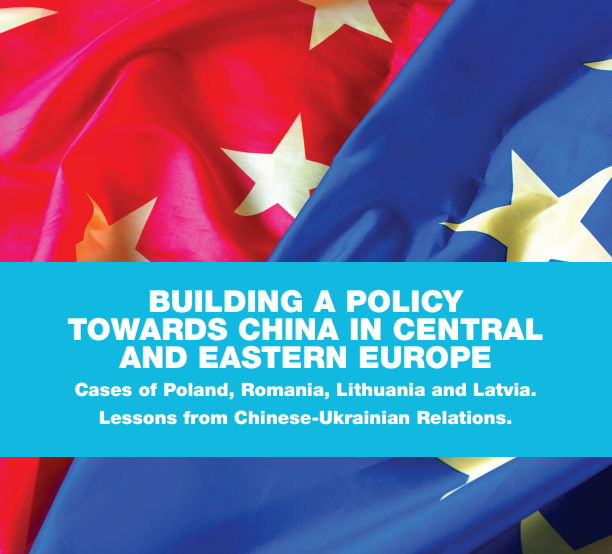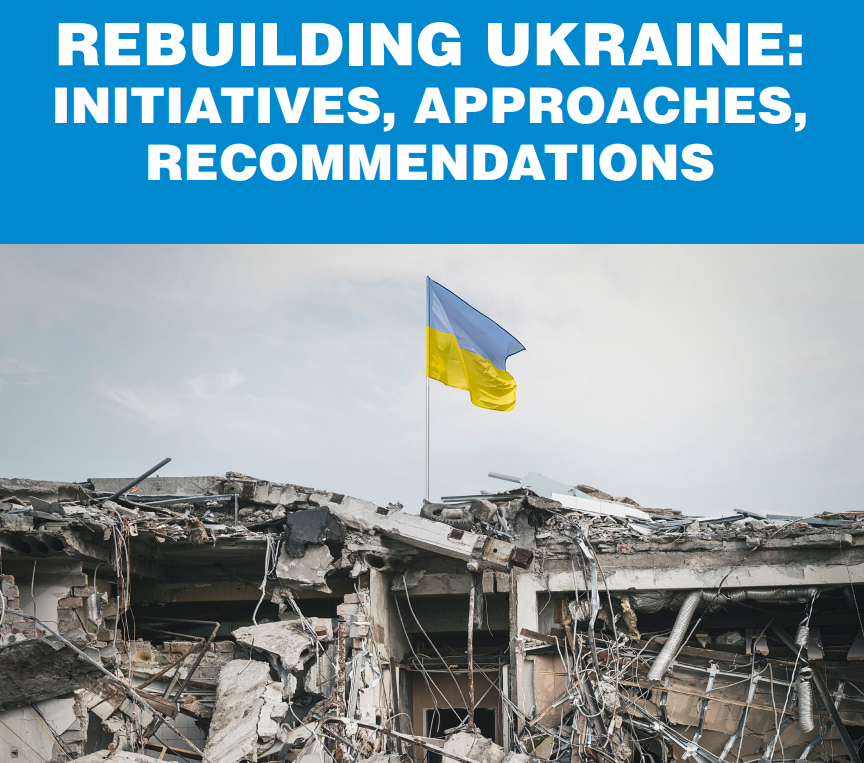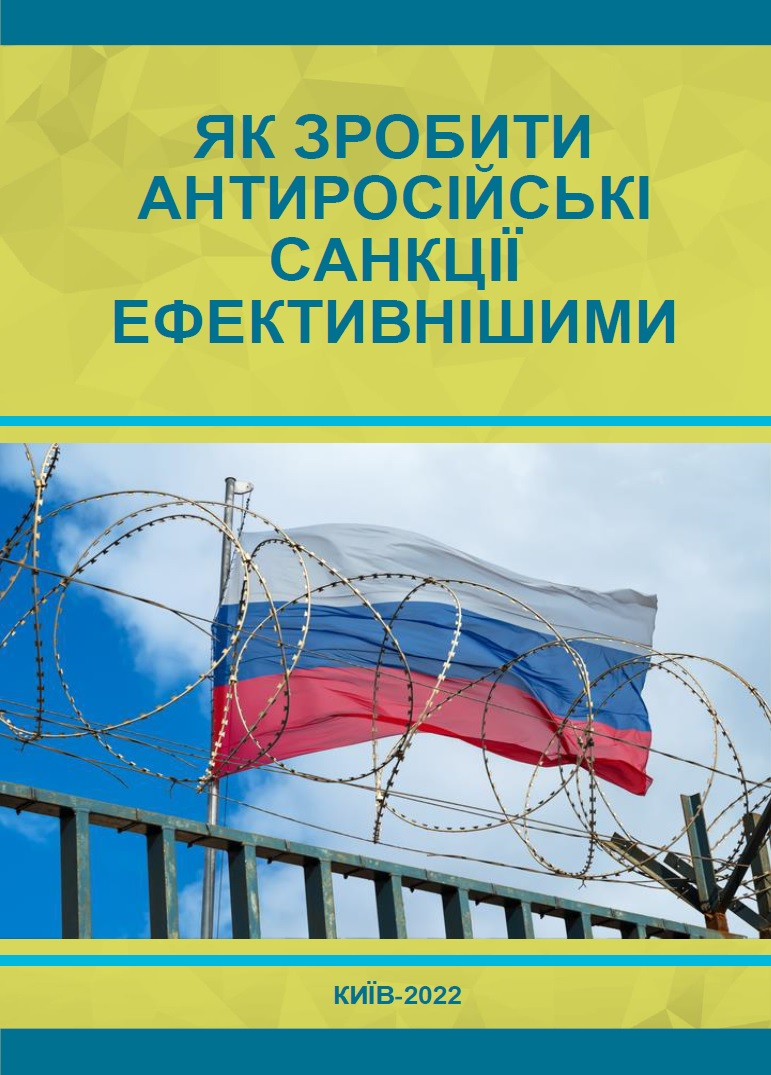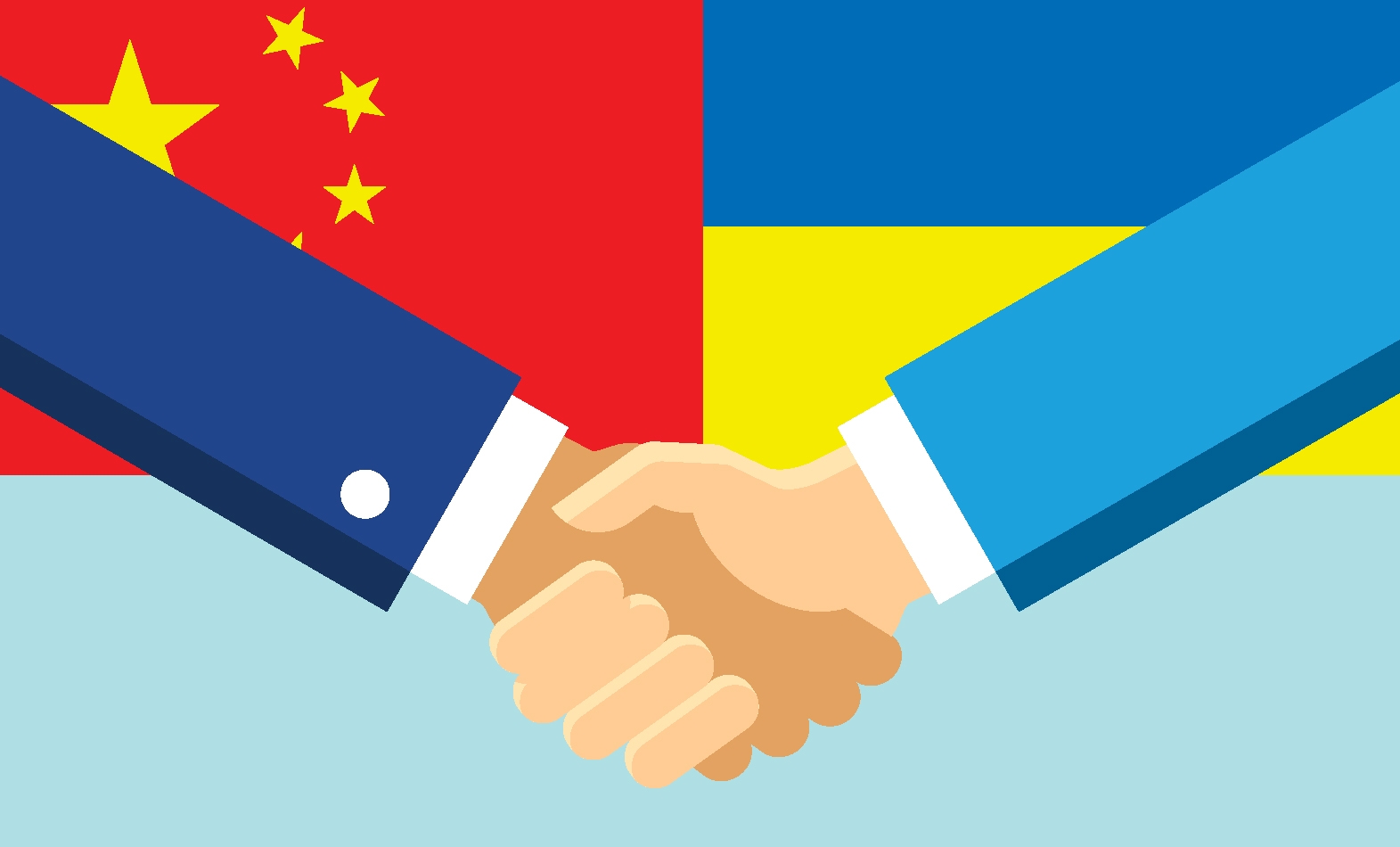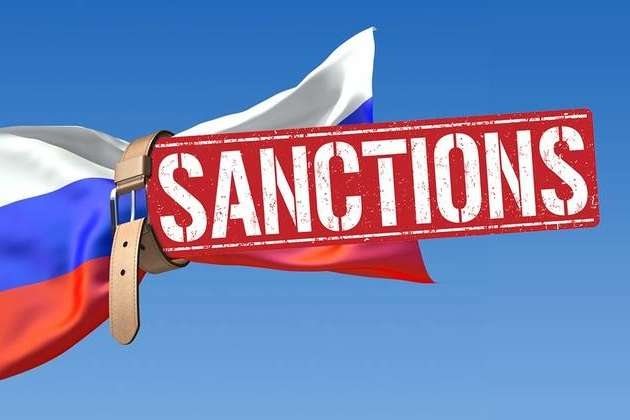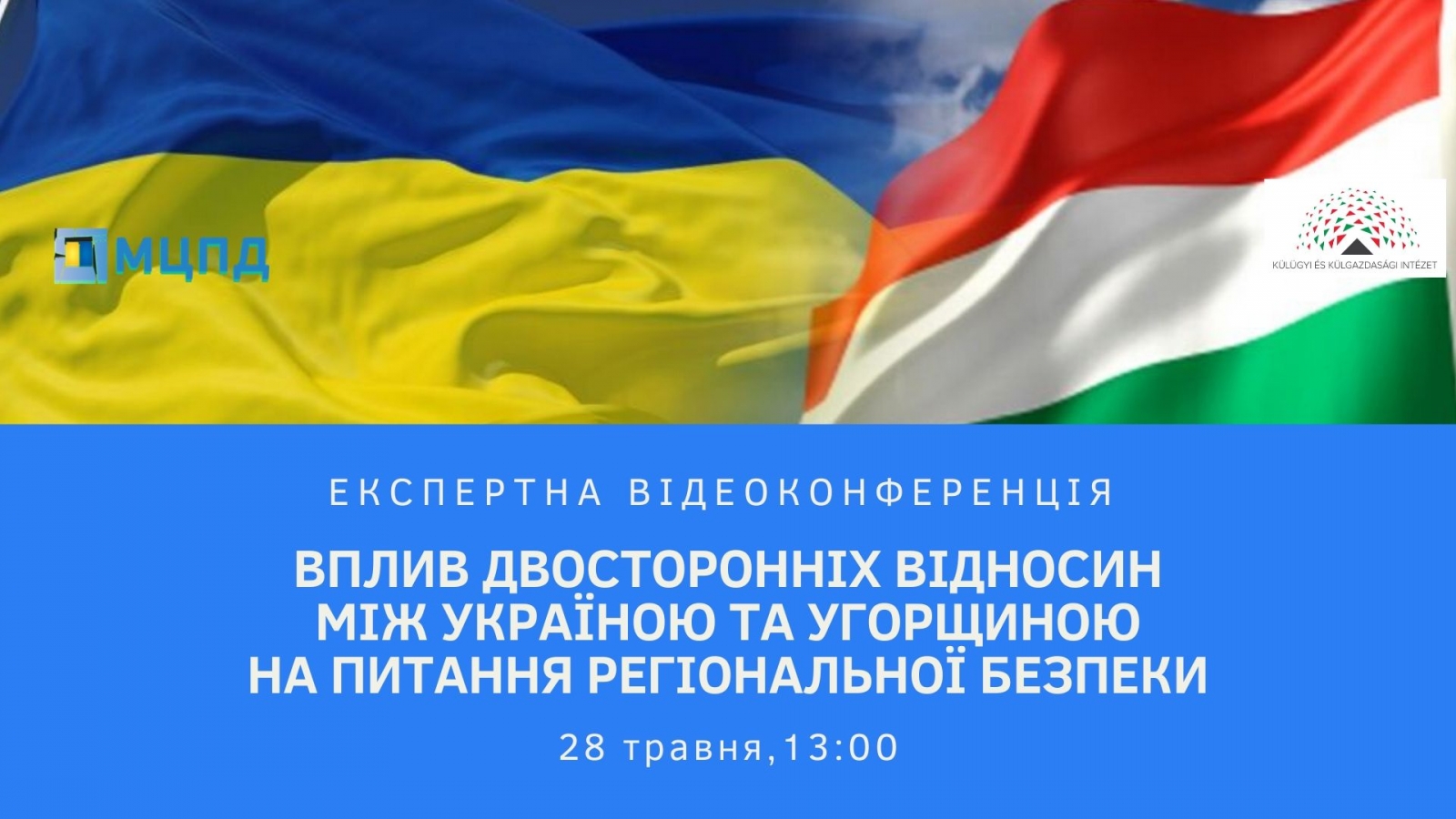Ukraine is about to terminate the epochal Treaty with Russia, singed more than two decades ago, by activating the clause of its Article 40. Sending a notification of non-prolongation six months before the end of another ten-year period would bring the Treaty to an end – and that’s the plan of the Ukrainian President.
From our perspective such a move would weaken Ukraine’s international position, including vis-à-vis Russia. The Treaty has been a legal instrument for holding off Russia: despite the fact that Moscow violated the Treaty by annexing Crimea, further escalation was made more risky and expensive because the Treaty has been valid. Moreover, this fundamental document has been referred to in numerous legal processes Ukraine has been running against Russia internationally. Last but not least – the Treaty has been an instrument for Ukraine to induce its weaknesses in a confrontation with a much superior rival. In asymmetric conflicts weak parties need binding norms and agreements, even if they are violated; while stronger parties want to get rid of them. A move by Ukraine to terminate the Treaty may in the end play with Russia’s hand.
Introduction
There are 41 articles in the Treaty on Friendship, Cooperation, and Partnership between Ukraine and the Russian Federation. The word “cooperation” is used most often, 35 times. In 1997 it has been definitely a treaty about cooperation virtually in everything.
Those days are gone. The Parties to the Treaty are rather fighting than cooperating. Russia has annexed Crimea and supported separatists in Donbas. Hostilities with varying degrees of intensity are under way in economic, trade, energy, information, and a number of other areas. But the Treaty has still been in force.
According to Article 40, the Treaty is supposed to continue automatically every ten years, unless one of the Parties notifies the other of its intention to terminate no later than six months beforehand. Deadline for Ukraine is the last day of September. At a recent meeting with ambassadors President Poroshenko demanded the Ministry of Foreign Affairs to prepare documents to notify the Russian party, that Ukraine would opt to halt the Treaty. This would be a simple legal step with possible huge political consequences.
For several times the issue of possible termination of the Treaty has been heavily debated in Ukraine. Pros and cons are rather well known by now. But the moment is different today: now a decision has to be taken, be it continuation or termination. There’s no room for further uncertainty. Moreover, presidential elections are just several months ahead. That adds specific flavor to any foreign policy moves, especially when it comes to dealing with Russia. Ukraine doesn’t seem to have a long-term Russian strategy, but politicians do have their election strategies at hand. The stance of the future of the Treaty, which has already become a symbol of hybridism of bilateral relations, may be a powerful asset in election wars of 2019.
Political speculations aside, the Treaty is a part of a broader fundamental problem: finding the best way to deal with Russia. This is not an easy problem at all. Strategic asymmetry, high level of interdependence, and lack of trust are key features to keep in mind while shaping the future of bilateral agreements.
What’s So Big about the “Big” Treaty?
In 1997 the world has been different from what it is today. It is even more so when comes to the Eastern Europe and regional security arrangements. Twenty years ago it seemed like former Soviet republics, although going through a difficult transformation period and occasionally suffering internal conflicts, would however manage to maintain international peace.
The agenda of regional security has not been yet dominated by Russia’s intentions to regain dominance over post-Soviet space. Even Russia’s relations with the West have not yet been damaged – that would happen shortly after. Bilaterally Ukraine and Russia were mostly concerned about division of the Black Sea Fleet and the status of the Russian Black Sea Fleet in Ukrainian Sevastopol.
An agreement was needed to resolve most urgent issues and set the framework for further – as it was believed – friendship, cooperation, and partnership. Twenty years ago Russia’s share in Ukraine’s foreign trade was about 38.5%[1], comparing to current 25%[2]. The two countries were united by economic ties, joint ventures, transit capacities, and social interactions. The potential for further cooperation seemed huge, and the Treaty was set to enhance it.
The Treaty is mostly about cooperation – from military to educational issues. It covers important problems of citizenship, language, economic cooperation, which were equally important in 1997 and after. But what is more important, it sets a mechanism for settling disputes, establishes regular meetings of minister of foreign affairs, joint commissions and other tools for a constant and active bilateral dialogue. It also outlines strategic partnership between the two countries, aiming at further strengthening it.
A part of the Treaty that lays out general principles of bilateral relations (Articles 2-7) carries the spirit of the agreement[3]. This is because of this part that the Treaty is labeled “big”. This is about being good reliable and predictable neighbors, respecting sovereignty and borders of each other and resolving any conflict issues by negotiations and peacefully. To a certain extent the Treaty contained a model for post-Soviet space of how relations with Russia can be arranged.
The Treaty has been a framework. It was designed to be a basis to a number of other bilateral documents, among which the Black Sea Fleet Agreement of 1997, the Treaty on the Russian-Ukrainian State Border of 2003, and the so-called Kharkiv Accords of 2010 are the most important. Overall there have been 451 interstate agreements between Ukraine and Russia before 2014. Many of them, of course, were signed before the “Big” Treaty. More than forty of them have already been terminated or suspended as a result of annexation of Crimea by Russia in 2014.
The “Big” Treaty is still valid.
Why the Treaty Should or Should Not Be Terminated?
The Treaty is valid, although attempts to terminate it have been earlier taken. Back in 2014 the Ukrainian Parliament discussed a law, aimed at denouncing the Treaty, but failed to approve it. A broader approach, targeting at breaking off diplomatic relations with Russia and introduce visa regime for Russian citizens visiting Ukraine, has also been quite popular among Ukrainian politicians and experts. Earlier this year the President called for suspension of specific parts of the Treaty.
When it comes to discussing Ukraine’s further steps regarding the Treaty or, generally, regarding Russia, there always appears emotional side hand in hand with political reasoning.
Having a valid treaty about cooperation, friendship and partnership – referred to as “strategic” in Article 1 of the Treaty – is certainly a kind of schizophrenia under current geopolitical circumstances. The spirit of the document is completely ruined, and it no longer reflects in any way a true agenda of bilateral relations between Ukraine and Russia.
On the other hand, the document in many ways reflects actually what Ukraine would like to one day have in relations with Russia: respect for sovereignty and territorial integrity, refrain from the use or threat of force or peaceful ways of settling disputes. These are fundamentals of mutual trust and good neighborhood. If Ukraine is ever to have another treaty with Russia, it most certainly would contain all these passages.
Traditional argument against terminating the Treaty comes to possible weakening of Ukraine’s position in international courts. However, from a juridical standpoint, the fact that the Treaty had been violated does not depend on whether it is terminated or not. Russia can be hold responsible in any case. From this point of view, it is not clear enough what was meant by President Poroshenko, when he mentioned that Ukraine “is prepared and legally protected enough for a next step – termination of the Treaty…which due to Moscow has long ago become an anachronism.”[4] Ukraine has been equally ready for this step during recent four years.
However, it has never been an easy option. Terminating the Treaty is often believed to weaken legal constraints on Russia’s further aggressive actions. On the other hand, by annexing Crimea from Ukraine and supporting separatists in Donbas the Kremlin has demonstrated that considerations of hard power calculations are far more important for Russia than any legal commitments. Not only has the “Big” Treaty with Ukraine been violated, but also founding principles of international law. It doesn’t look like if Russia decides further escalation is in its interests, the Treaty would stop it.
But the Treaty is also important in one more regard. Ukraine is a weaker party to a protracted asymmetric conflict. Weaker parties are usually better off when a stronger party is bounded by norms, agreements, and multilateral commitments. In other words having no framework agreement with Russia would damage Ukraine more. Possible weakening of international position versus Russia may be a price for internal political gains.
Bringing legal basis of bilateral relations into correspondence with political reality is, of course, necessary and inevitable. The “Big” Treaty hasn’t lived up to expectations, and is certainly among other important international norms, violated by Russia. The end of another ten years period of extension may be a right moment to terminate the Treaty. However, extensive analysis should be carried out to define how termination of the Treaty would impact the whole complex of bilateral Ukrainian-Russian agreements.
Conclusion
Russia’s aggressive policy towards Ukraine has undermined all the values which were laid out the foundation of bilateral relations and thus made the Treaty outdated.
However, there have been good reasons for Ukraine so far not to rush and halt the agreement. A violated Treaty has been referred to in international courts and put additional diplomatic and political costs on Russia. With its fundamental provisions being broken, it still provided minimal toolbox for protecting some of remaining Ukrainian interests in relations with Russia.
But today – due to the Treaty’s timeline and Ukrainian elections approaching – compromised decisions have little chances to work out. Rhetoric about abandoning some of the Treaty’s provisions, so popular several months ago, is no longer applied. Terminating the Treaty, as well as announced Constitutional amendments about Ukraine’s NATO and EU membership aspirations, are supposed to work together and help bring electoral result next year.
Simple decisions, however, are not going to work in a situation so difficult. Ukraine should be getting ready for more unpredicted and more risky relations with Russia after the Treaty is terminated.
[3] Treaty on Friendship, Cooperation, and Partnership between Ukraine and the Russian Federation // http://zakon.rada.gov.ua/laws/show/643_006
[4] President: We Are Ready for Termination of the Treaty on Friendship, Cooperation, and Partnership between Ukraine and the Russian Federation // https://www.president.gov.ua/news/prezident-mi-gotovi-do-pripinennya-diyi-dogovoru-pro-druzhbu-49254
ICPS experts researched the question of building a policy towards China in Central and Eastern Europe
ICPS has prepared an analytical study focused on the evolution of China's regional policy in Central and Eastern Europe, as well as recommendations for developing policies towards China in the region. The "One Belt, One Road" initiative has become a key tool for promoting China's geopolitical interests and implementing its grand strategy aimed at changing the existing international order. This global initiative encompasses transportation, logistics, trade, and investment projects, promoting China's transition to a new level of influence and responsibility. Europe plays an important role in this. The European market is a natural "center of gravity" for China's export-oriented economy; Beijing seeks to build strong cooperation with Europe based on active trade and interdependence. China, in its turn, is also an important trading and economic partner for Europe. Central and Eastern European countries (CEE) have in some sense become "gateway" to Europe for China. Seeking to deepen relations with them and involve in its own infrastructure projects, China has developed and implemented a regional policy within the framework of the "14+1" initiative (previously "16+1" and "17+1"), as well as on a bilateral level. This Chinese activity has elicited ambiguous reactions both among participating states and among other EU members. Russia's invasion of Ukraine has brought new problems to the agenda and significantly weakened China's position in Europe, particularly in the CEE. Political and security issues have taken priority over trade and infrastructure. The ongoing war has forced both China and countries of the region to adjust their perceptions and policies towards each other. The most vivid trends and problematic issues are examined in the paper utilizing the experience of Poland, Romania, Lithuania, and Latvia. Taking also into account Ukraine's experience in building relations with China, recommendations are provided for the main elements of CEE's policies towards China. More information can be found at the following link: https://icps.com.ua/en/our-projects/publications/building-a-policy-towards-china-in-central-and-eastern-europe/
What are the main problems of reconstruction plans for Ukraine and what are the ways to solve them: experts provided recommendations
International Centre for Policy Studies has presented the document "REBUILDING UKRAINE: INITIATIVES, APPROACHES, RECOMMENDATIONS", which analyzed different aspects of the future reconstruction process for Ukraine. According to various estimates Ukraine's total losses resulting from Russian aggression at the end of 2022 constituted around 700 billion US dollars. This amount has been increasing every day of Russian attacks and bombardments targeting civilian infrastructure and killing innocent people. The international community recognizes the need to finance reconstruction of Ukraine. There have been many international conferences, expert studies and discussions on that. However, there is currently no consensus on sources or tools for Ukraine's rebuilding projects, no agreed overall concept of how the process will be conducted and implemented. Meanwhile, needs of Ukraine for reconstruction are urgent and vital to keep country viable and able to withstand Russian continuing aggression. This necessitates an in-depth study of the issue as well as public and expert discussions to suggest appropriate decisions. In this paper the International Center of Policy Studies examines existing international experience of post-war reconstruction with a special attention to good examples, which can be used by Ukraine. Existing initiatives regarding the reconstruction of Ukraine are analyzed with a focus on new ideas and recommendations, which can be used in this process. The study intends to contribute to current expert discussions in Ukraine and among our partners on reconstruction of the country during and after the war. You can read/download the ICPS publication "REBUILDING UKRAINE: INITIATIVES, APPROACHES, RECOMMENDATIONS " by following the link: https://icps.com.ua/en/our-projects/publications/rebuilding-ukraine-initiatives-approaches-recommendations/
How to make sanctions more effective: ICPS analysts offered new ideas
International Centre for Policy Studies has presented the document "How to make anti-Russian sanctions more effective", which analyzed the gaps in the sanctions policy. It is noted that the international community has adopted seven packages of sanctions against Russia since its full-scale invasion of Ukraine in 2022. Over 50 countries have in some form joined the sanctions regime. Some states, such as Israel and China, don't adopt sanctions but block potential ways for Russia to evade their effect. Mainly, it is the developing countries that don't implement the sanctions regime, while the collective West is decisive and united in its exploit of the tool. Akin to 2014 and after, sanctions constitute a complex mechanism of selective action. They are not absolute but rather operate in different sectors and against particular individuals or legal entities. In addition to sectoral sanctions, diplomatic and visa restrictions are in place. At the same time, to make the sanctions more effective, the international community should fill the gaps that allow for a selective designation of Russian oligarchs and politicians. It requires a systemic analysis and monitoring aimed at finding these gaps, then sanctioning the individuals who had avoided personal sanctions. Accordingly, this document contains not only an analysis of the sanctions policy, but also recommendations for minimizing its gaps. You can read/download the ICPS publication "How to make anti-Russian sanctions more effective" by following the link: https://icps.com.ua/en/our-projects/publications/how-to-make-anti-russian-sanctions-more-effective/
SINO-UKRAINIAN RELATIONS: RESEARCH PAPER
In context of the ICPS' latest project on monitoring foreign economic relations, ICPS experts have conducted extensive research, round table debates and in-depth analysis of the current status of Sino-Ukrainian relations. China's political interest and economic investments in Ukraine has risen exponentially since the announcement of the One Belt One Road Initiative, yet is Ukraine ready for intensifying bilateral relations with such a world power? For more details, read the ICPS' latest study.
Austrian experts and diplomats discussed ICPS study “Sanctions against Russia”
Sanctions must remain a key instrument of pressure on Russia to restore Ukraine's sovereignty and territorial integrity. This conclusion was reached by Ukrainian and Austrian foreign policy experts during expert discussion of the ICPS study “Sanctions against Russia: current state, prospects, successes and gaps of the multilateral international sanctions regime against Russian Federation”, which took place on Tuesday, June 3, in the format of online discussion. About 40 Austrian and Ukrainian diplomats, analysts and foreign policy experts took part in online discussion “Sanctions against Russia: are they still effective?”, organized by ICPS in conjunction with the International Institute for Peace (IIP, Vienna) with the support of the International Renaissance Foundation. The speakers were Hannes Swoboda, President of the International Institute for Peace (IIP), Peter Havlik, expert at the Vienna Institute for International Economic Studies, Anastasia Galushka, ICPS expert in international law and human rights and Mykola Kapitonenko, ICPS associate expert. The participants of discussion stressed the need to continue sanctions against Russia, as Russia's actions in Ukraine are a challenge not only for our country, but for the entire international community which is why they must receive a joint coordinated response. “Sanctions, as a tool “between wars and words”, remain the only way to put pressure on Russia's foreign policy while limiting its destructive potential for international security,” ICPS expert in international law and human rights Anastasia Galushka said. According to Mykola Kapitonenko, combination of different types of sanctions will allow for a more systemic impact on Russian policy; while the procedure of their periodic extension will signal the dependence of sanctions pressure on specific changes in the behavior of the Russian Federation. It should be noted that earlier ICPS experts presented the study “Sanctions against Russia” in the United States, Estonia, Belgium, Italy and Poland. You could download and read ICPS study “Sanctions against Russia” via the link: https://cutt.ly/orQ0PGd
ICPS conducted a video conference on bilateral relations between Ukraine and Hungary
On Thursday, May 28, the International Centre for Policy Studies (ICPS) and the Institute for Foreign Affairs and Trade (Hungary) initiated an expert video conference on “Impact of Bilateral Relations between Ukraine and Hungary on Regional Security”. The online event was part of the project “Ukraine-Hungary: Towards Understanding” with the support of the Institute for Foreign Affairs and Trade. During the video conference, the participants discussed the state and prospects of relations between Ukraine and Hungary in the context of regional security, Hungary's role in Ukraine-NATO relations, the impact of the Russian conflict on Ukrainian-Hungarian relations and regional security. The event was attended by several dozen experts, including Christina Murphy, Deputy Head of Mission, Hungarian Embassy in Ukraine, Georgy Ilyash, research fellow at the Institute for Foreign Affairs and Trade (Hungary), Mykola Kapitonenko, ICPS Expert on Foreign Policy, Dmytro Tuzhansky, political scientist, expert on Ukrainian-Hungarian relations, Anastasia Galushka, ICPS expert on foreign policy and international law. “Relations between Hungary and Ukraine still remain in a well-known deadlock,” Mykola Kapitonenko said. - Minor shifts in recent months, firstly, do not fully meet the expectations that arose after the victory of Volodymyr Zelensky in the presidential election, and, secondly, according to Budapest, do not solve the key problem of narrowing the rights Hungarians in Ukraine”. According to him, the rapid development of events in the region pushes our countries to cooperation. Against the backdrop of the coronavirus pandemic, a bilateral agreement on health cooperation was signed, a corridor was set up in Hungary for Ukrainians to return home, and new formats of governmental remote communication were tested. “The usual agenda, dominated by the Russian threat, retaliation by NATO and the lack of democracy, is giving way to the challenges of pandemic,” Mykola Kapitonenko said. - In addition to those directly related to human health, these are problems that have already been or will be caused by the economic recession and the growing demand for security among citizens. Together, they change the way states communicate and perceive each other. Borders and various barriers are being partially restored, selfishness is growing, and political decisions are returning to the usual national level.” Anastasia Galushka drew attention to the controversial law on education which provoked numerous discussions at the political and professional levels. “It can hardly be argued that citizens living in Ukraine should know the state language of the country, and that this law can only be seen as an advantage for members of national minorities,” ICPS expert said. “However, implement the law in practice was much harder than expected.” According to her, the Venice Commission also addressed this issue and formulated some principles, stating that knowledge of the official language of the state is a factor of social cohesion and integration, and it is legitimate for states to promote their language and call for the state language to be the language of education for all. “Ukraine and Hungary are part of a single region, establishing cooperation and maintaining a common consensus could significantly expand the capabilities of both countries,” Anastasia Galushka added. - This would control the level of escalation of the conflict. The regional context can open new horizons for both states, take them out of the circular discussion and focus only on current problems. A full-fledged strategic partnership is still a long way off, but at least the current crisis can be overcome.”


